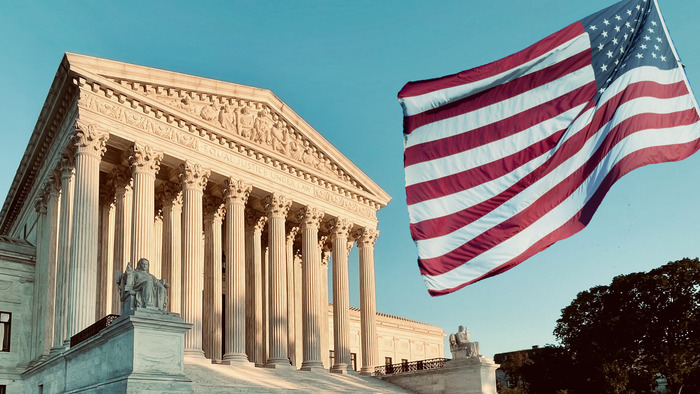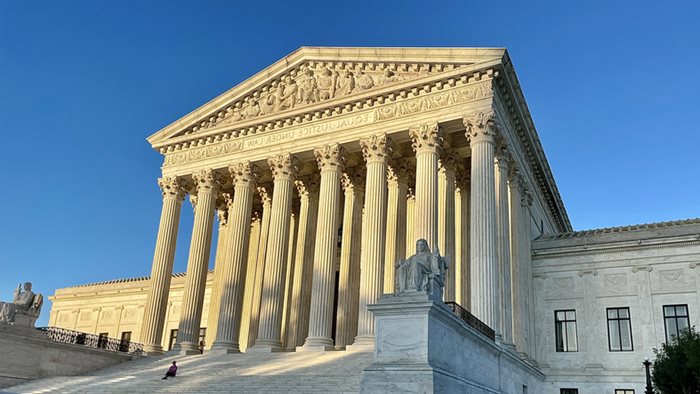Retailers Ask SCOTUS to Settle Online Sales Tax Debate
The invisible hand of the market should guide retail growth
- By [ Deborah White ]
- Arlington, VA
- 11/01/2017
A “local mall does more business in an afternoon than the entire Internet handles in a month.” So said a columnist in Newsweek back in 1995—three years after the United States Supreme Court ruled in Quill vs. North Dakota that states could not legally compel out of state retailers (then catalog sellers) to collect and remit state sales tax. That decision, which arrived at the dawn of e-commerce, created an unforeseen and unforeseeable loophole that has given Internet-only sellers a distinct competitive advantage over their local brick and mortar competitors. Today, the Retail Litigation Center is formally asking the Supreme Court to revisit Quill and its predecessor, urging the Court in an amicus brief drafted by former U.S. Solicitor General Don Verrilli, who is now with the law firm of Munger, Tolles & Olson, to grant South Dakota’s petition for certiorari in South Dakota v. Wayfair, Inc., Overstock.com, Inc., and Newegg, Inc.
“This is the right case and the right time for the Court to end the carve out created by Quill that has tipped the scales in favor of online-only sellers for more than two decades,” said Retail Litigation Center President Deborah White. “No amount of ingenuity or skill can make up for the disparity that exists when one seller is forced to levy an eight percent tax and a competitor is not. A retailer that invests in a community with a storefront and jobs shouldn’t be forced to compete with one arm tied behind her back because government tax policy is effectively subsidizing a competitor.”
“South Dakota’s law, and its pending petition, provide a clean, direct challenge to Quill and an excellent example of how the ordinary economic-nexus approach can provide a brighter line than the physical-presence requirement. It also has the virtue of treating community retailers and absentee retailers the same way when they participate in e-commerce.”
“Only this Court has the power to correct the constitutional error that is the basis of Bellas Hess and Quill, namely the notion that the Constitution forbids the States from requiring that absentee retailers collect sales tax unless Congress grants them that power by largesse. Congress cannot overrule this Court’s interpretation of the Commerce Clause. At most Congress can bypass the error by returning to the States as a matter of legislative grace the taxing power denied them by this Court as a matter of constitutional law.”
Key excerpts from the Retail Litigation Center’s amicus brief in South Dakota v. Wayfair, et. al:
“[W]aiting and watching as businesses and States maneuver around Quill is like watching to see how a badly broken bone knits on its own before deciding whether or not to set it back in proper alignment. The business and legal structures that are growing up around Quill are crooked. Some may prove workable, after a fashion, but they will be necessarily inferior to the structures that would arise from a level playing field and a coherent Commerce Clause jurisprudence.”
“[W]here the Court intervenes in interstate commerce with a “fixed” judge-made rule, it has the obligation to review from time to time whether that rule is reflecting or distorting current “economic realit[y].” That is exactly what the Court did in Quill, when it gave the physical-presence requirement a 25-year checkup. Now another 25 years have passed, and the need for another checkup is more pressing than ever.”
“It is imperative that, as the retail industry adapts to the growing ubiquity of the internet and e-commerce, that transformation is driven by business efficiencies and not tax dodges, so that community-based retailers are not forced to abandon their physical presence in order to avail themselves of Quill’s “tax shelter.” The invisible hand of the market, and not the visible thumb of Quill on the scales, should guide retail’s growth.”
###
The Retail Litigation Center is a public policy organization that identifies and engages in legal proceedings that affect the retail industry. The RLC, whose members include some of the country's largest retailers, was formed to provide courts with retail industry perspectives on significant legal issues, and highlight the potential industry-wide consequences of legal principles that may be determined in pending cases.
RILA is the trade association of the world's largest and most innovative retail companies. RILA members include more than 200 retailers, product manufacturers, and service suppliers, which together account for more than $1.5 trillion in annual sales, millions of American jobs and more than 100,000 stores, manufacturing facilities and distribution centers domestically and abroad.



